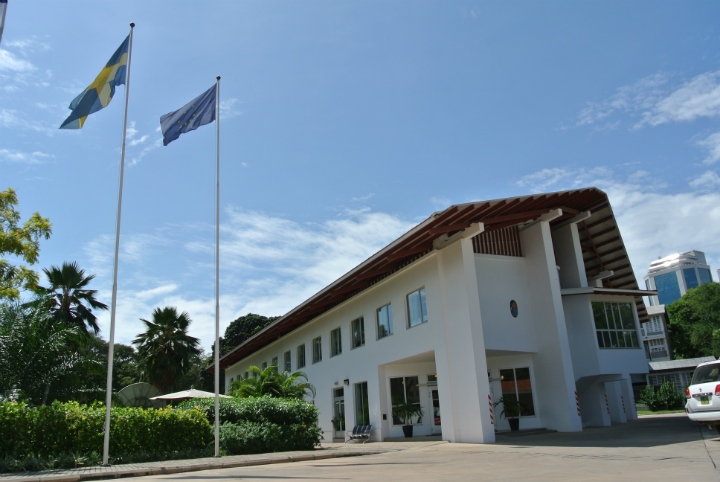Kiswahili and French recognised as official languages of the EAC

The Heads of State also agreed to accelerate the establishment of the Political Federation, marking the fourth and final stage of the EAC's integration process.
Kiswahili and French have been identified as the new official languages of the East African Community (EAC).
The decision was made during the 24th Ordinary Summit of the East African Heads of State in Tanzania, where amendments to Article 137 of the EAC Treaty were signed and approved.
More To Read
- EAC and AGRA rally young entrepreneurs to transform regional food systems
- EAC's Nairobi summit pushed to January amid regional tensions
- Kenya criticises ‘over-judicialisation’ after East African Court of Justice blocks EU trade deal
- East African Court postpones swearing-in of nine Somali legislators to EALA
- Museveni clarifies Indian Ocean comments after Kenya downplayed war talk
- Kenya dismisses war fears as Mudavadi quashes claims of Uganda ‘overrunning’ the country
Previously, Article 137 had designated English as the official language, with Kiswahili set to be developed as a common language for the region. However, the EAC had not formalised Kiswahili's recognition as an official language across all its eight member states.
Kiswahili is widely spoken in Tanzania and Kenya, with growing use in Uganda, Rwanda, Burundi, the Democratic Republic of Congo, South Sudan, and Somalia. French, the official language of Burundi, the Democratic Republic of Congo, Congo, and Rwanda, will now be officially recognised across the EAC as well.
In addition to the language recognition, President William Ruto of Kenya was appointed as the new EAC chairperson for the year 2024/25, with President Hussein Mohamud of Somalia named as the rapporteur. The chairperson position had been held by South Sudan's President Salva Kiir.
President Ruto committed to advancing peace, stability, and economic development within the region.
"Trade remains a key engine for economic growth and regional integration. On account of this, we must address internal barriers to intra-EAC trade," Ruto said.
"We must eliminate non-tariff barriers, enhance infrastructure connectivity, and foster regulatory harmonisation. This will create a seamless trading environment, driving our competitiveness and economic growth."
The Heads of State also agreed to accelerate the establishment of the Political Federation, marking the fourth and final stage of the EAC's integration process.
The leaders noted that the formation of a political federation was first proposed in 1963 by the founding fathers of the EAC – President Jomo Kenyatta of Kenya, Dr. Apollo Milton Obote of Uganda, and Mwalimu Julius Kambarage Nyerere of Tanganyika (now Tanzania).
Although Tanganyika and Zanzibar went on to form the United Republic of Tanzania, the federation's broader vision remains an unfulfilled aspiration to unite the region, as envisioned by these leaders.
The EAC Heads of State also stressed the importance of fully implementing the Customs Union and Common Market protocols to promote intra-regional trade, which remains relatively low.
Ugandan President Yoweri Museveni pointed out that the region’s trade history should extend beyond the past 25 years, highlighting that East Africa's Coastal, Great Lakes, and Lake Victoria Basin areas had once formed a connected trade area (CTA), linked by trade routes extending to Mesopotamia. He noted that colonial partitioning had disrupted this interconnectedness.
President Museveni further argued that the formation of a political federation could have prevented key historical conflicts, including the rise of Idi Amin in Uganda, the problems in Burundi and Rwanda, and the internal strife in Somalia and South Sudan.
Ruto also expressed strong support for the federation, referencing a 2010 survey that showed overwhelming public support for regional integration.
He commended Burundi, Uganda, and Kenya for advancing national consultations on the drafting of a constitution for the EAC Political Confederation and praised Rwanda, South Sudan, and Tanzania for setting dates for their consultations.
Ruto highlighted the EAC’s position as Africa's leading regional economic community, with intra-regional trade at 28 per cent, the highest on the continent.
He emphasised Kenya’s role in facilitating dialogue in South Sudan, Somalia, and Uganda to stabilise the Horn of Africa region and endorsed the merging of the Luanda and Nairobi peace processes for the Democratic Republic of the Congo.
Top Stories Today












































